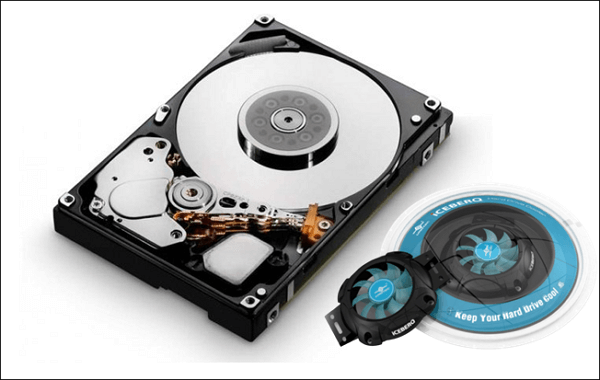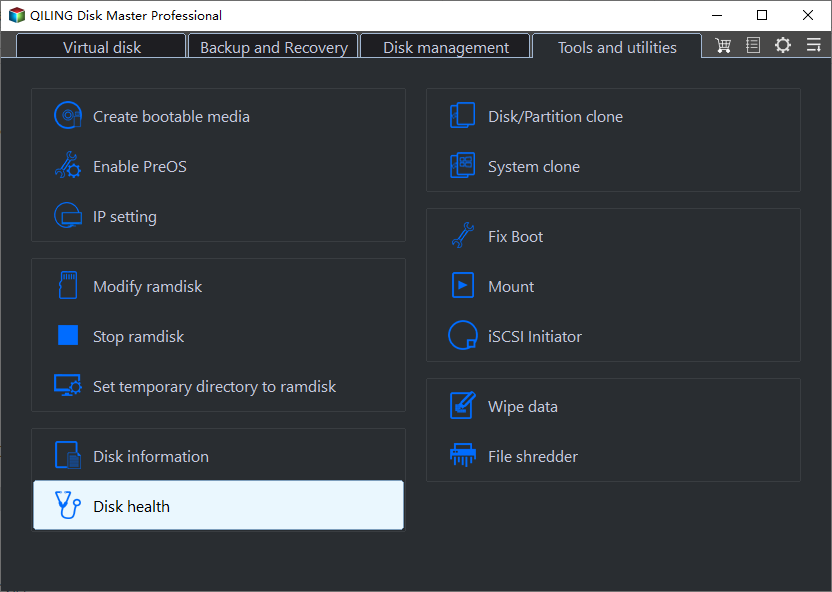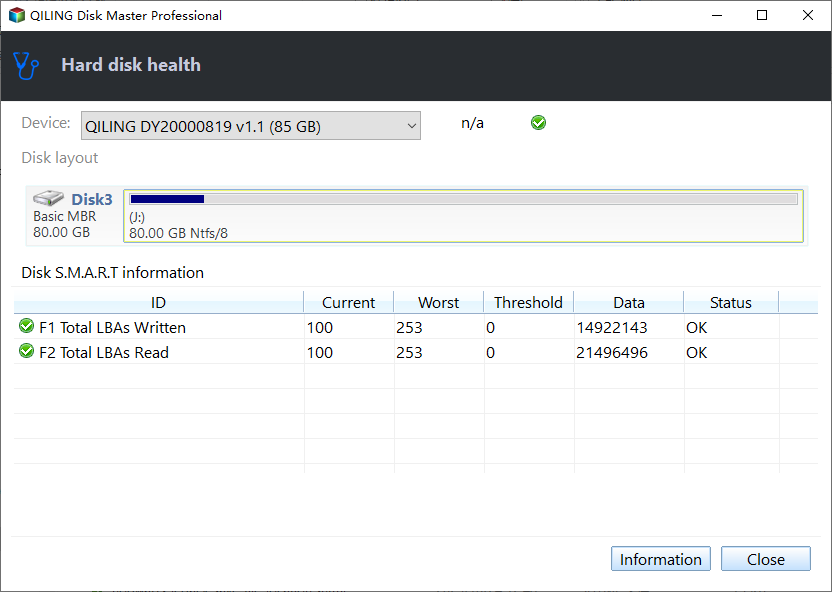How to Keep Hard Drive Cool [Step-by-Step Guide]
Are you facing the overhitting issue of your hard drive? No doubt, heat creation is by default when it comes to the hard drive because of its platter rotation functionality, but if it's overhit, that can lead to hard drive failure! So be careful and take prevention before it's too late. Here in this post, we will discuss some of the most effective ways will help you to keep your hard drive cool. So read the article till the end for a better understanding.
Why Keep Hard Drive Cool Matters
As we know, a hard drive runs into a platter rotation mechanism which usually creates heat, but when there is excess heat formation, it can affect the hard drive and damage the electrical components. Overheating can also lead to element expansion; as a result, a head crash can happen. Overheating constantly hurts your hard drive, and you may face data loss and a hard drive crash in the future.

Now the question is, what are the symptoms of hard drive hitting? Here we are listing some of the acute symptoms of an over hitting a hard drive, which are:
- Files take a long time to open.
- You notice excessive physical heat.
- Programs take a long time to load fully.
- There's a delay between input and action.
- Your device takes a long time to awaken from sleep or stand by.
- Performance issues and lag when watching videos or playing games.
If you are experiencing any of these above-listed symptoms, it may be because of the hard drive over-hitting issue.
How to Keep Hard Drive Cool - 5 Tips
Here in this part, we will guide you on how to keep the hard drive cool. We will list five excellent working tips to help you avoid overhitting issues on your hard drive, so let's get started with more details.
Reduce the Ambient Temperature
If you feel your hard drive is overhitting, it may be because of the high ambient temperature. Your PC room must not be too warm to keep your hard drive cool. According to research, the user should keep their computer no more than 21°C to avoid overhitting issues of the hard drive.
Consider Your Usage
People usually open several programs and files at once and force the maximum use of the hard drive; as a result, it causes overhitting. So, we will recommend you always consider your usage. Permanently close unnecessary programs and files so that your hard drive will not come under enormous pressure; as a result, it can stay cool for a long time, even after casual use.
Clean Your Device's Vents
Cleaning your PC's vent can keep your hard drive cool. Due to low maintenance, most of the time, PC vents are found filled with dust. This dust usually obstructs the airflow of your PC; as a result, hitting occurs. We suggest you clean your PC's vent every month for the best PC and hard drive performance.
Upgrade Your Cooling System
For the intense use of your PC, we suggest you go with more powerful cooling fans and an advanced liquid cooling system that can easily maintain the appropriate temperature of your system and hard drive for better performance. You should consider an advanced cooling system if gaming or running robust programs.
Monitor Your Hard Drive Temperature
If you want to keep your hard drive cool, then it's better to monitor your hard drive temperature so that you will not push it longer. Many programs are available online that can easily monitor the hard drive temperature. We recommend you go with the Qiling Disk Master, an advanced and reliable hard drive temperature monitor with useful features.
A Professional Tool to Monitor the Hard Drive Temperature
Regarding a professional tool for monitoring the hard drive temperature, we suggest going with Qiling Disk Master. This advanced hard drive monitoring and disk management tool has several features and functionality. The disk health feature of Qiling Disk Master is handy. It usually tracks your system components and keeps attributes related to disk health efficiency. It tracks the PC temperature, power on hours, hard drive rotation rate, and other crucial attributes of the PC's performance.
Step 1. Launch Qiling Disk Master and click the blue arrow to activate the "Disk Health" feature under the "Discovery" section.

Step 2. Select the target disk and click the "Refresh" button. Then, you can see the health condition of your disk.

The key features of Qiling Disk Master are as follows:
- Test SSD read/write speed
- Check SSD health on Windows 10
- Check SSD temperature on Windows 10
- Check hard drive health on Windows 7/8/10/11
- Run an external hard drive speed test or SD card speed test
The main feature of this tool is to provide disk temperature so that user can consider their uses and save their hard drive from overheating issues.
For safety purposes, we always recommend using the Qiling Disk Master tool and downloading it only from its official website.
Conclusion
If you are still reading this post, you must know how to keep your hard drive cool. We have shared the five most effective ways to avoid overhitting issues of hard drives; try all these methods and see which one works better for you. As a professional Windows temperature monitor, Qiling can efficiently check the health status of your HDD or SSD, avoiding data loss.
Keep Hard Drive Cool FAQs
Here, we will answer some frequently asked questions that might clear your doubts. So, read these answers thoroughly.
1. How do I stop my hard drive from overheating?
First, ensure your PC has an efficient cooling system that can detect any increase in temperature and speed up the fans so airflow can reduce the heat. Second, always be aware of the temperature range of your hard drive. Lastly, manually increase the fan speed during a game or any intensive work.
2. Do hard drives need to be cooled?
Yes, hard drives need to be cooled. Keeping your hard drive cool, you will perform better and avoid issues like hard drive failure and data loss due to hard drive overhitting issues. It also ensures the longevity of the hard drive.
3. What temperature will damage a hard drive?
Research says most hard disks can safely run at a range of 5 to 50 degrees Celsius. Anything over this temperature can damage a hard drive. However, it also depends on what OEMs have to suggest. Some hard drives are built for extreme conditions. So make sure to also check with the official listing and documentation about the version of your SSD.
Related Articles
- How to Fix 'Switch User' Option Missing in Windows 10/11
- (3 Easy Solutions) How to Safely Reset Registry Windows 10
- What Is System Restore Command and How to Use It on Windows 11/10
- Top 8 Ways to Fix Kernel Mode Heap Corruption BSOD Error